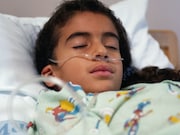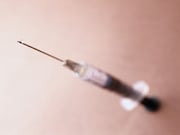2000 to 2015 Saw Increase in Medicare GME Payments
Increase mainly due to indirect payments, primarily inpatient costs rather than resident-to-bed ratio
Medicare Fraud-Prevention Rules to Be Revised
Current rules make it difficult for hospitals and doctors to work together, officials say
Burnout Linked to Poor Quality Care in Published Literature
But effect size may be smaller than reported, especially for objective quality measures
Cost of Waste in U.S. Health System Estimated
Total annual costs of waste vary from $760 to $935 billion; estimated savings range from $191 to $282 billion
Data Suggest Viral Etiology for Pediatric Acute Flaccid Myelitis
Seventy-nine percent of confirmed cases of AFM had antecedent respiratory or febrile illness
Guideline for Community-Acquired Pneumonia Updated
Recommendations relate to diagnosis, management; recommend against routine use of Gram stain, culture
Mortality Down for Autoantibody-Associated Vasculitides Patients
Average annual decline of 1.6 percent in AAV-related mortality rate seen from 1999 to 2017 in the U.S.
Survey: Many U.S. Adults Not Planning to Get Flu Vaccine
Vaccine knowledge and anticipated rates of vaccination even lower for pneumococcal disease
Considerable Proportion of ICU Admissions May Be Preventable
ICU hospitalizations for ambulatory care-sensitive conditions have decreased during a 10-year period
Hypothermia Aids Cardiac Arrest With Nonshockable Rhythm
Higher percentage of patients survived with favorable neurologic outcome at day 90



















